World Languages Education Major
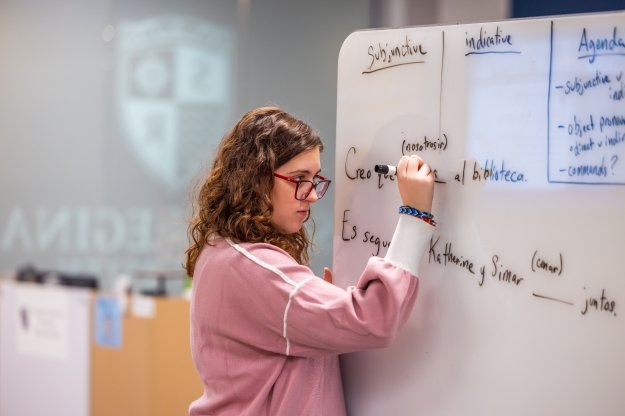
Salve Regina University's world languages education program develops your skills in either French or Spanish and prepares you to apply for Rhode Island teacher certification in grades K-12. You'll gain the knowledge to confidently move from being a student in the classroom to a teacher who makes a difference.
I had the opportunity to experience a variety of school placements, learning models and teaching practices. I developed my language skills in a small classroom environment, engaged in a variety of course topics and studied abroad in Sevilla, Spain.
Ashley D'Antuono '21, Spanish teacher, Garden City Middle School
Prepare to Teach Diverse Students
Our education courses build a strong foundation in teaching methods based on current theory and best practices. Starting in your sophomore year, you'll spend significant time in field placements, preparing to effectively engage diverse students in a variety of classroom settings.
French or Spanish courses cover all aspects of your chosen language, from speaking to writing, with a focus on grammar and expression. You'll study culture and civilization by looking at literature, films and other cultural products in their social, historical and cultural contexts. Courses in linguistics and second language learning round out your preparation to become a successful educator.
You’ll also spend a semester studying in a French- or Spanish-speaking country, allowing you to gain a deeper understanding of cultural differences and similarities, exercise your responsibilities as a global citizen and promote meaningful cross-cultural exchange.
We also offer a combined bachelor’s/master’s program, enabling qualified Salve undergraduates to begin our graduate program in special education in their senior (fourth) year.
Salve's education programs are accredited by the Rhode Island Department of Education and aligned to the Rhode Island Professional Teacher Standards.
Put Theory Into Practice
Through extensive clinical placements, including two semesters of student teaching, you'll put theory into practice, observe modern teaching methods and gain valuable skills. During your student teaching, you'll have substantial responsibility for the full range of teaching duties. Your experience in the classroom is supplemented by weekly seminars, where you analyze and evaluate the teaching-learning process, and individual meetings with your supervisors.
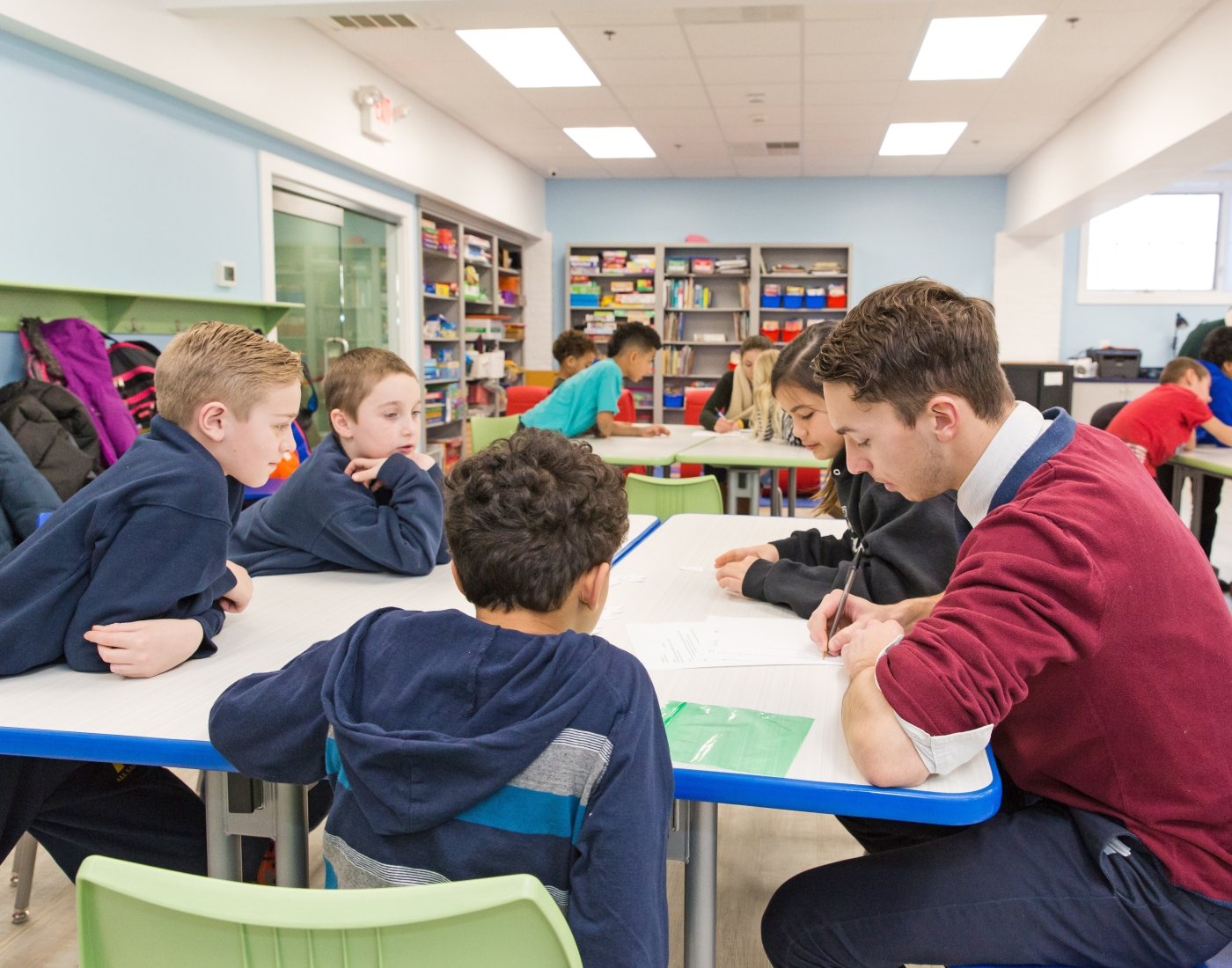
Education Abroad
Margaret Morra '23 earned a master's degree in applied languages in French through a joint Middlebury College and teaching assistant program in France. While completing her thesis in Paris, she taught English and conducted research in language didactics at a local high school. Salve's close-knit environment made a strong impact on Morra during her undergraduate studies. "I was able to work closely with my professors, and they really understood me as a student," she said. "I felt supported and encouraged to succeed the whole way through."
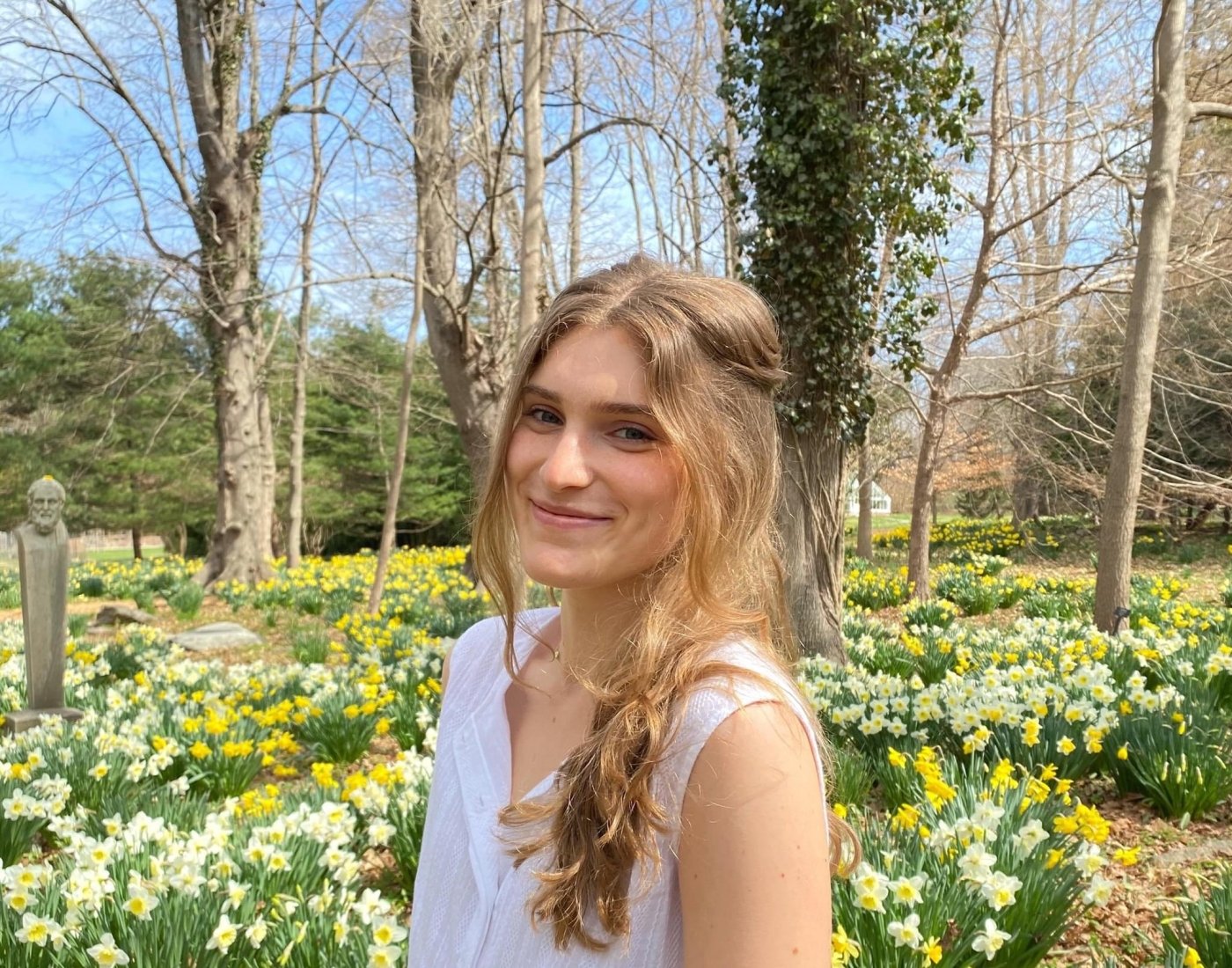
Immerse Yourself
Our Language House is a living learning community where you can connect with others who share a love for French and Spanish language and culture. You'll live with fellow enthusiasts and our Fulbright foreign language teaching assistants, practice your language skills and engage with native speakers. Activities include language tables, movie nights and volunteering to teach French and Spanish at a local elementary school's after-school program.
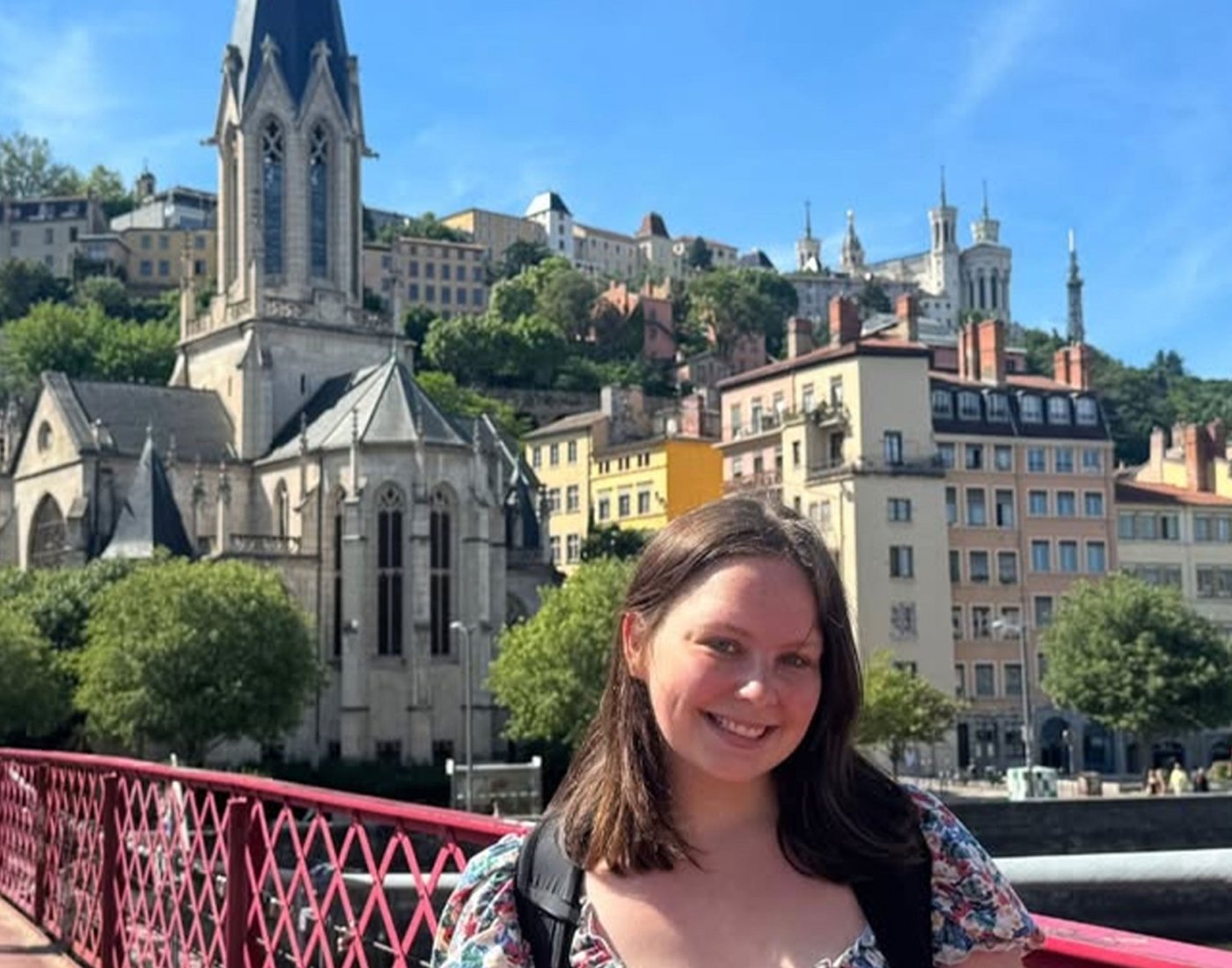
Career Paths in World Languages Education
While our program is focused on teaching French or Spanish in grades K-12, the knowledge and skills you'll gain are valuable in a variety of careers, including:
- Admissions counselor
- Corporate trainer
- Education consultant
- Foreign service officer
- International business executive
- International development worker
- International relations specialist
- Museum educator
- Peace Corps volunteer
- Principal
- Professor
- School counselor
- Writer
Degree Options
Bachelor of Arts and Science in world languages education (French)
You'll complete at least 120 credits to earn the bachelor's degree, including 41-44 credits of core courses, 33 credits of education courses and 37 credits of French and linguistics courses.
Bachelor of Arts and Science in world languages education (Spanish)
You'll complete at least 120 credits to earn the bachelor's degree, including 41-44 credits of core courses, 33 credits of education courses and 37 credits of Spanish and linguistics courses.
Meet Our World Languages Education Faculty
Comprehensive instruction and personalized guidance from our committed and experienced faculty ensures that our students acquire the knowledge and skills needed to put theory into practice, and to become exemplary practitioners and scholars.
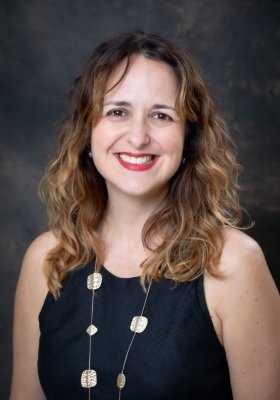
Dr. Esther Alarcón Arana
- Associate professor
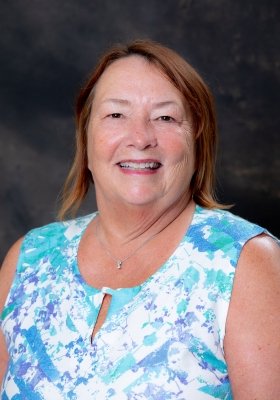
Dr. Kimberly Behan
- Lecturer
- Chair, Education
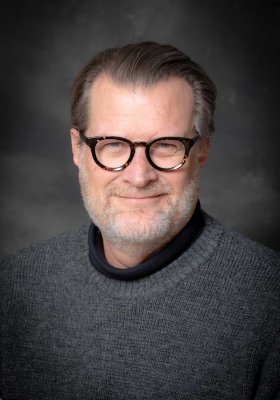
Dr. Dean de la Motte
- Professor
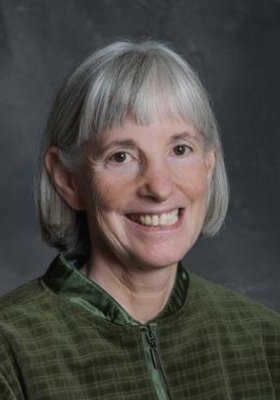
Dr. Alice Graham
- Professor
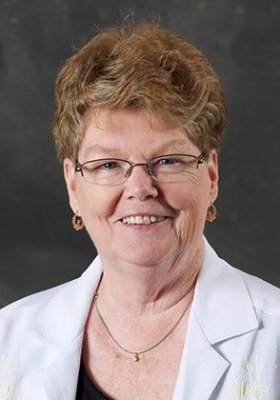
Dr. Elizabeth McAuliffe
- Associate professor
- Coordinator
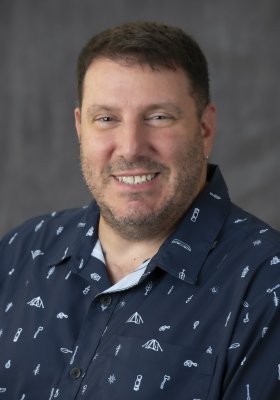
Dr. James G. Mitchell
- Professor
- Co-director of Core Curriculum
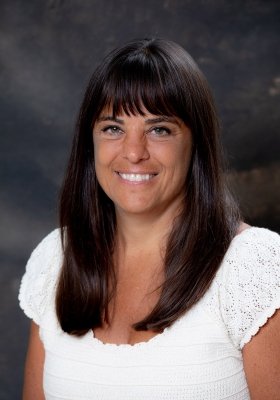
Dr. Tracy Pelkowski
- Associate professor
- Program coordinator
